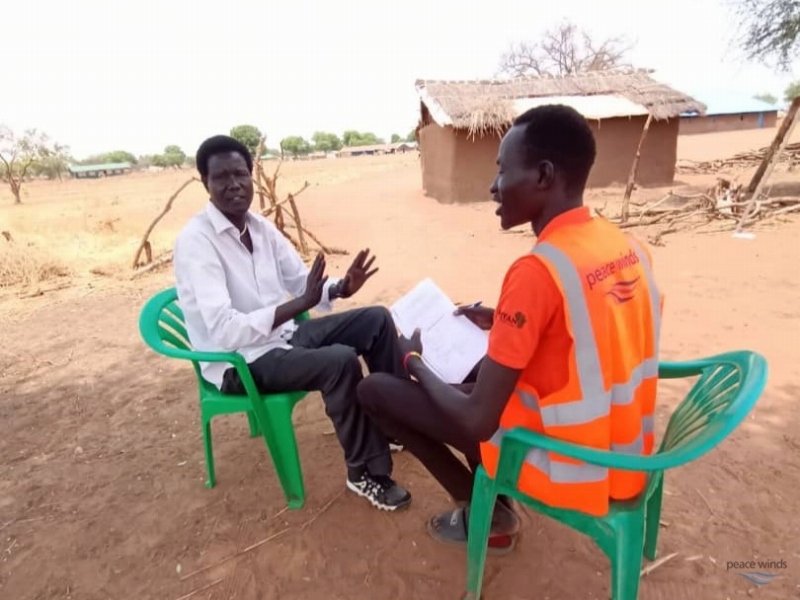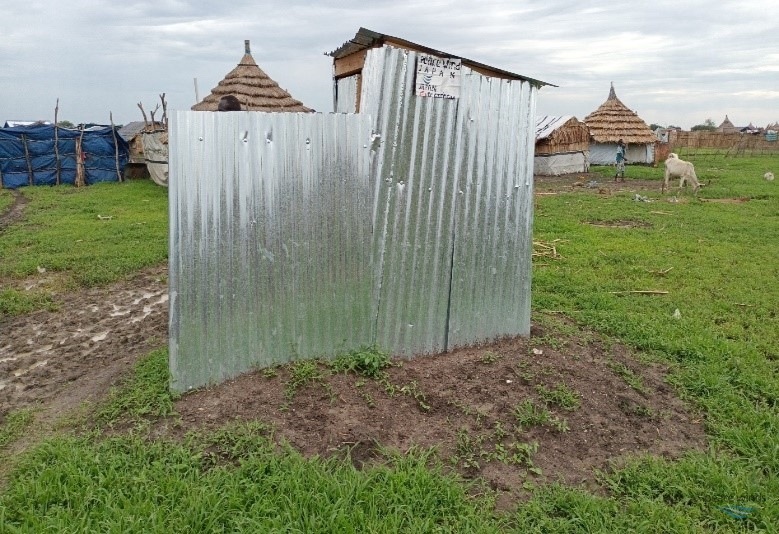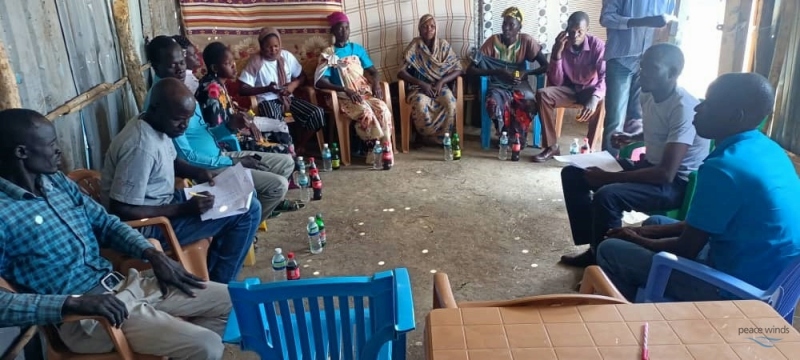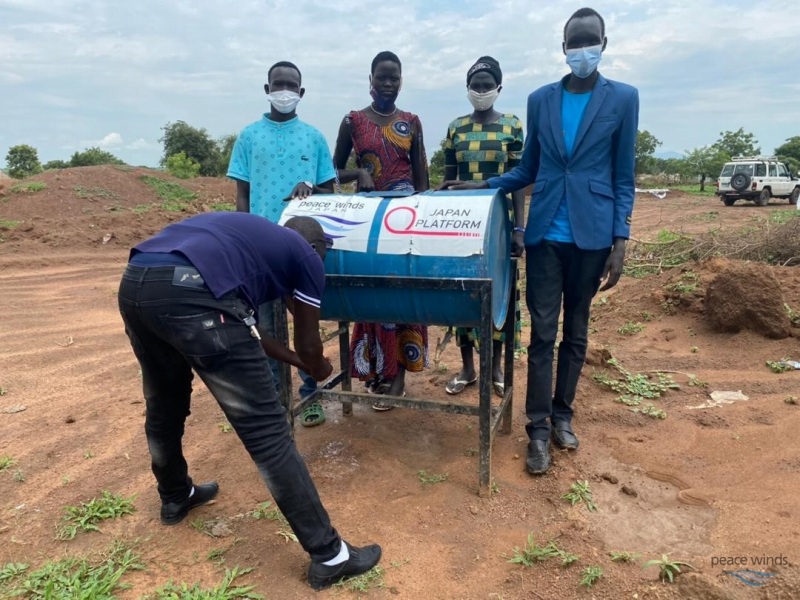Support for Displaced People Following Flooding in South Sudan
Since April 2022, increasing numbers of people have been fleeing to camps for internally displaced persons (IDPs) in Mangalla, an area of Juba County in southern South Sudan, as a result of severe flooding in Melut County and Jonglei State, further north. Peace Winds recently completed a water supply and sanitation project to support displaced people in two areas with the goal of ensuring that they would be able to use and maintain the facilities even after the end of the project.
Many refugee and IDP camps like those in Mangalla rely on “common” toilets and bathing areas, meaning that they are shared by large numbers of people. However, Peace Winds worked with those living in the camps to build more hygiene facilities and change the model so that toilets and showers are shared between only three or four families. The sense of community that these facilities have created has been an unexpected but welcome benefit of the project; Peace Winds teams found that this method gave camp residents a stronger sense of ownership over the facilities. Families take pride in working together to keep their spaces clean, and they are more likely to use them for proper bathing, hand-washing, and toilet use.
Additionally, in preparation for the rainy season in August and September, youth camp members worked with camp leaders to build drainage channels that prevented flooding amid torrential rains. Peace Winds found that involving the camp management committee and camp leaders in the project created a stronger sense of community and cooperation.
Peace Winds created a COVID-19 Prevention and Hygiene Awareness Team to carry out hand-washing and hygiene awareness training in the camps, and we asked the camp management and camp leaders to participate as well. Their cooperation ended up being a great success. Camp leaders continued to educate residents about proper hygiene even after the trainings were completed, and they raised money to buy extra supplies of soap from local merchants and to replace broken faucets on the hand-washing stations. This cooperation between the camp leaders and residents is an important step in supporting hygiene and safety in a place where life can be quite difficult.
When Peace Winds staff spoke to camp residents after completing the project, it became clear that there has been a behavior change. They told us things like “we now take turns cleaning the toilets” and “I have started using soap to wash my hands.”
In an ideal world, support activities like this would no longer be necessary. To that end, Peace Winds wanted to make sure that this project would encourage people’s independence so they can continue to lead safe and healthy lives even after our staff members have left. Peace Winds will continue to implement activities for vulnerable communities that increase their independence.
This project was made possible with funding from the Japan Platform and donations from our followers. We thank you for your continued support.



